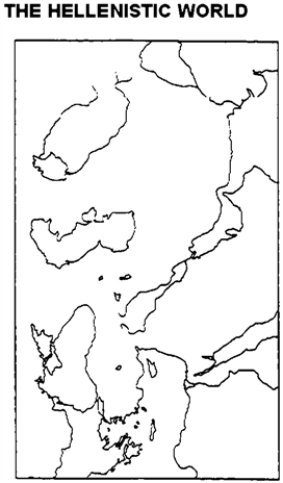Exam 3: The Greeks: From Myth to Reason
Exam 1: The Ancient Near East: the First Civilizations82 Questions
Exam 2: The Hebrews: a New View of God and the Individual76 Questions
Exam 3: The Greeks: From Myth to Reason95 Questions
Exam 4: Rome: From City-State to World Empire92 Questions
Exam 5: Early Christianity: a World Religion79 Questions
Exam 6: The Rise of Europe: Fusion of Classical,christian,and Germanic Traditions89 Questions
Exam 7: The Flowering and Dissolution of Medieval Civilization84 Questions
Exam 8: Transition to the Modern Age: Renaissance and Reformation91 Questions
Exam 9: Political and Economic Transformation: National States, overseas Expansion, commercial Revolution84 Questions
Exam 10: Intellectual Transformation: the Scientific Revolution and the Age of Enlightenment85 Questions
Exam 11: The Era of the French Revolution: Affirmation of Liberty and Equality92 Questions
Exam 12: The Industrial Revolution: the Transformation of Society78 Questions
Exam 13: Thought and Culture in the Early Nineteenth Century82 Questions
Exam 14: Surge of Liberalism and Nationalism: Revolution, counterrevolution, and Unification76 Questions
Exam 15: Thought and Culture in the Mid-Nineteenth Century: Realism, positivism, darwinism, and Social Criticism86 Questions
Exam 16: Europe in the Late Nineteenth Century: Modernization, nationalism, imperialism93 Questions
Exam 17: Modern Consciousness: New Views of Nature, human Nature, and the Arts77 Questions
Exam 18: World War I: the West in Despair83 Questions
Exam 19: An Era of Totalitarianism88 Questions
Exam 20: World War II: Western Civilization in the Balance56 Questions
Exam 21: Europe After World War II: Recovery and Realignment, 1945-198959 Questions
Exam 22: The Troubled Present55 Questions
Select questions type
Please define the following key terms. Show Who? What? Where? When? Why Important?
-Thales
(Essay)
4.8/5  (34)
(34)
Please define the following key terms. Show Who? What? Where? When? Why Important?
-Agamemnon
(Essay)
4.9/5  (31)
(31)
Which of the following states emerged as a first-rate power in the fourth century B.C.?
(Multiple Choice)
4.9/5  (37)
(37)
Aristotle believed the "best political community" should be composed of
(Multiple Choice)
4.9/5  (28)
(28)
Please use this outline map of the Hellenistic world to answer the question(s).
 -How did the Peloponnesian War influence various Greek philosophers and historians?
-How did the Peloponnesian War influence various Greek philosophers and historians?
(Essay)
4.8/5  (45)
(45)
Please define the following key terms. Show Who? What? Where? When? Why Important?
-Koine
(Essay)
4.8/5  (32)
(32)
After the Persian Wars,more than 150 city-states organized a confederation known as the ____ to protect themselves against a renewed confrontation with Persia.
(Multiple Choice)
4.7/5  (42)
(42)
The practice that forced an Athenian citizen to leave Athens for ten years was called
(Multiple Choice)
4.9/5  (28)
(28)
Showing 81 - 95 of 95
Filters
- Essay(0)
- Multiple Choice(0)
- Short Answer(0)
- True False(0)
- Matching(0)